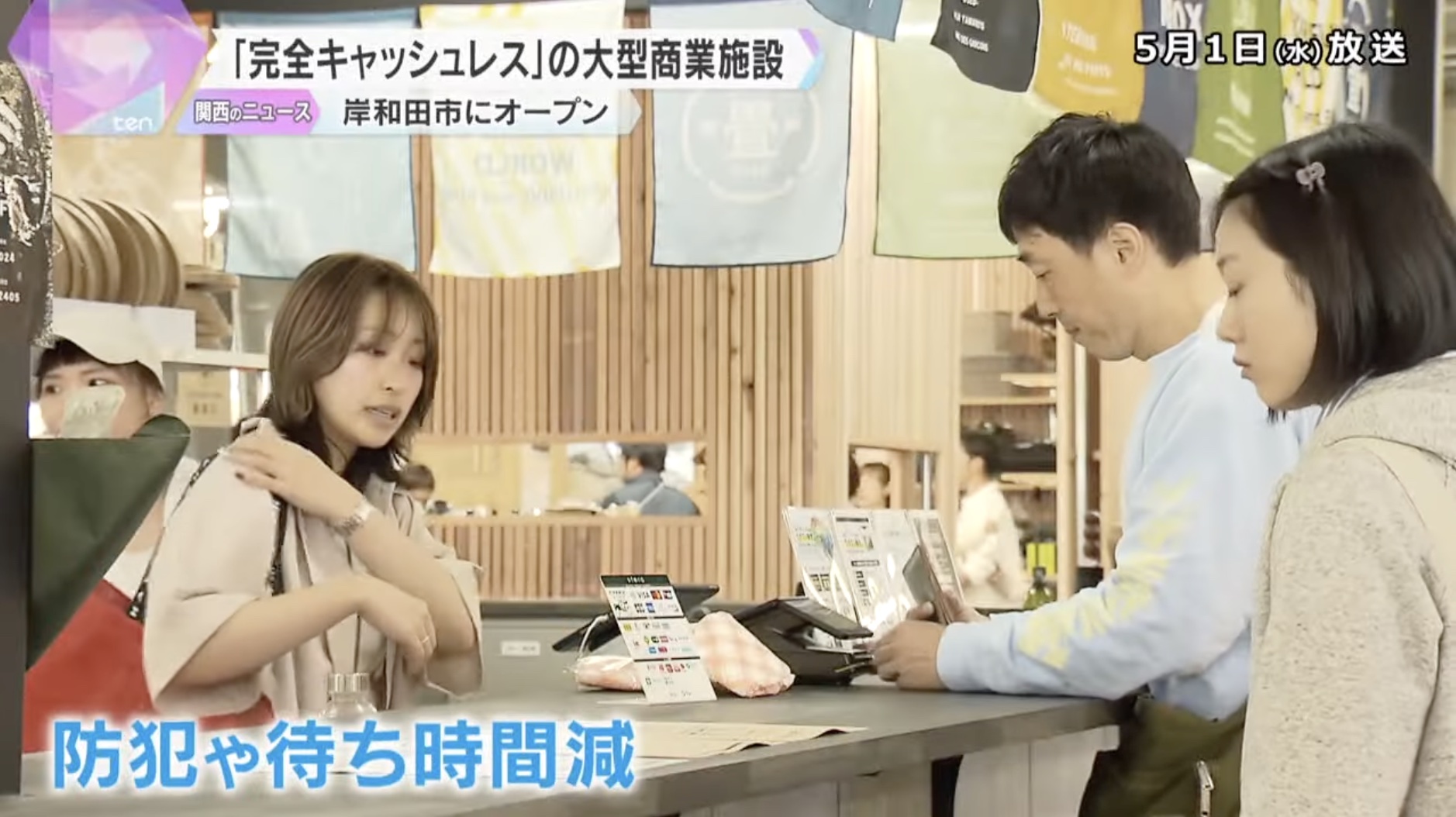OSAKA, May 01 (News On Japan) - A large-scale commercial facility, boasting about 50 stores from shopping to lodging and operating entirely cashless, has opened in Kishiwada City, Osaka Prefecture.
Opened on the first of the month, the facility named 'WHATAWON' is developed by an apparel company in Izumi City. It has introduced a complete cashless system — a first in Japan for large commercial facilities — aimed at reducing wait times by eliminating the need for cash transactions, including security risks and the hassle of handling change.
To differentiate itself from other commercial establishments in the area, 'WHATAWON' features online retailers that previously had no physical stores making their debut alongside bath facilities. The facility is designed as a "stay-and-play entertainment mall," where visitors can enjoy a full day's activities and even stay overnight. Leveraging its proximity to a park, it also offers the convenience of shopping with pets.
A shopper commented, "I'm thrilled. It’s a blessing, especially for someone with a large dog. There are quite a few restaurants, and the fact that dogs are allowed makes it perfect for snapping some Instagram-worthy photos."
The facility expects to attract 1.54 million visitors annually and aims to contribute to regional revitalization.
Source: YOMIURI
















